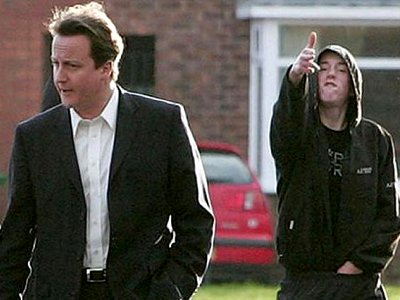
THE RETURN OF CHARACTER
Character is becoming fashionable again in politics and it is a gift to the Church
Several political thinkers have spoken recently about the need for a new language of virtue in public life which is rooted in private behaviour. Their motives for this stem from a new realisation that life chances are deeply affected by the kind of person you are, especially in the labour market where emotional skills are increasingly valued by employers.
For too long we have assented to a crude and unsustainable distinction between private and public life, not accepting that private actions have public consequences. The individualism which permeates all our thinking has allowed us far too much scope to behave as we wish and to diminish any sense that what we do might impact unfairly on others.
The carbon footprint has broken through this unsustainable distinction between private and public to be followed by a horde of other ‘footprints’. Smoking, drinking, parenting, marriage, driving and shopping are just a handful of issues that are freshly recognised to have an impact on the wider community, for better or for worse, both financially and socially. The ability of people to resist temptation and defer gratification, to understand how their emotional responses and personal preferences are embedded in a network of relationships which are altered by the decisions they make are now pertinent questions which until recently people have been able to deflect with the assertion: ‘it’s none of your business how I choose to live my life’.
These changes allow judgments to be made of others more readily, but it is here that society may run into difficulty. This is because of deficiencies in language. The disciplines which govern public debate now are in the social sciences and they may find it harder to enunciate a language fit for the occasion. Economists speak of moral or social capital, which is merely an adjunct of material growth, while other related secular disciplines are reluctant to use the language of moral failure because of the need not to be judgmental. The new focus on character may thus prove incoherent.
There is also the danger that no credible and integrated story can be found to support the commitment to character. The obvious location of this is found in the person and work of Jesus Christ. The Christian commitment to character reformation by the power of the Holy Spirit has historically provided this. The language of sin, grace, forgiveness and sanctification powerfully describes the Gospel, but society is not rigorous in how it uses Christian language. Shaming is a popular secular tool of control today but it largely comes without the possibility of forgiveness and a prior acceptance that we are all sinners.
The new emphasis on character is nevertheless to be welcomed, not just because it could help to restore heart to an atomised nation but because it points, however obliquely, to the priority of character reformation through Christian discipleship. In this way another avenue for mission is opened up. The work of the Church is to call people to love God and thereby to love their neighbour as themselves. Good politics encourages people to love their neighbour as themselves. This is a step from loving God himself and one we are called to walk with those who take it.
POPULAR ARTICLES

Obama's Covert Wars
The use of drones is going to change warfare out of all recognition in the next decades.

Through A Glass Starkly
Images of traumatic incidents caught on mobile phone can be put to remarkable effect.

What Are British Values?
Is there a British identity and if so, what has shaped the values and institutions that form it?


